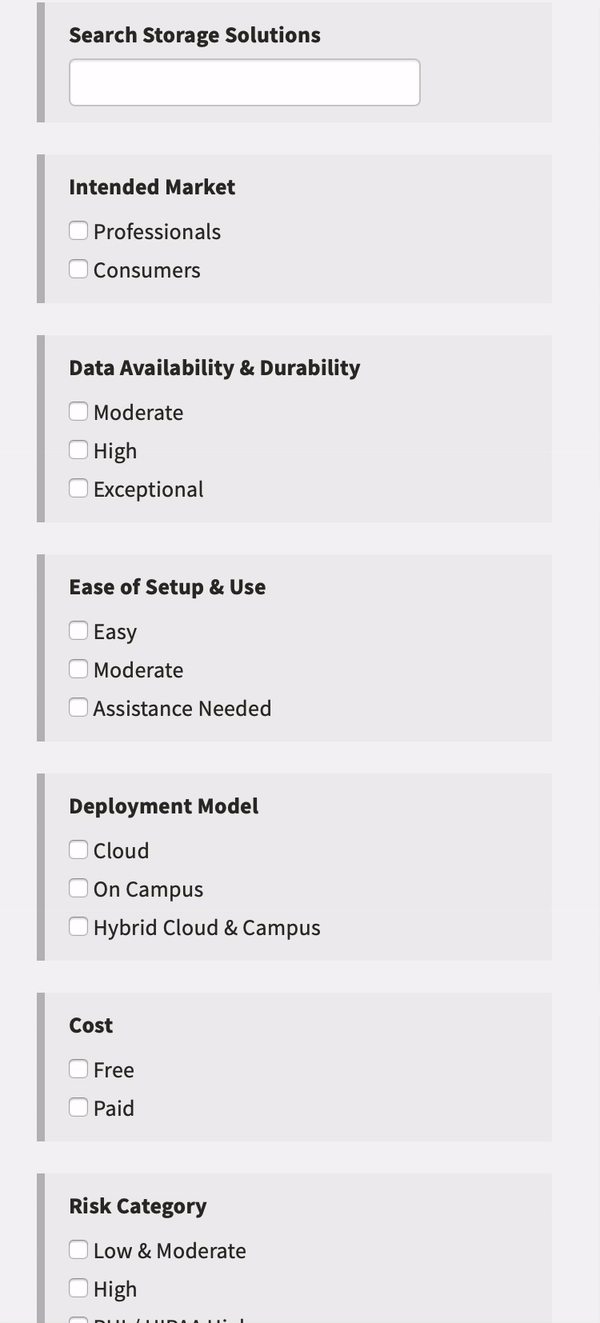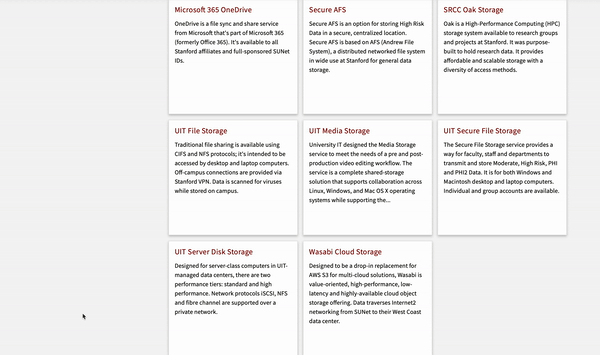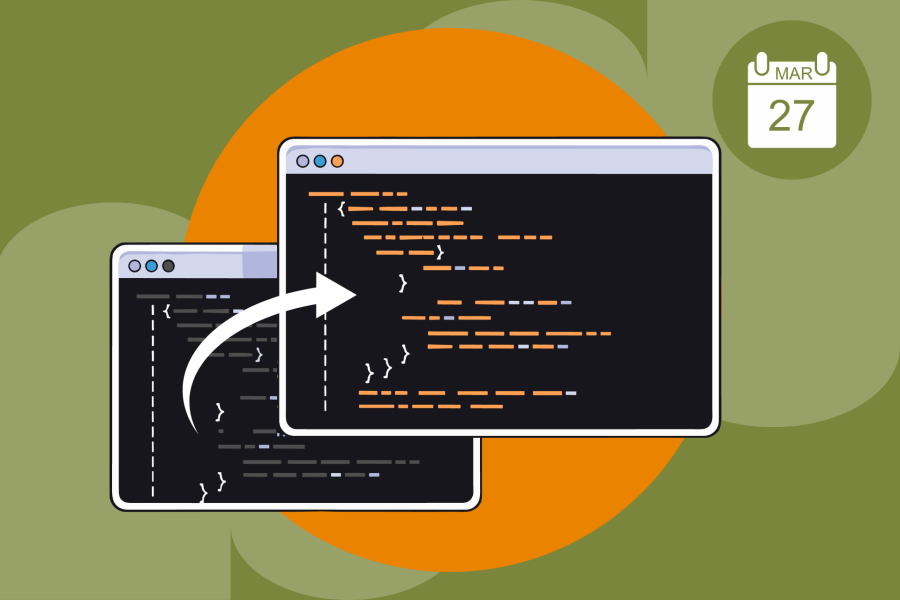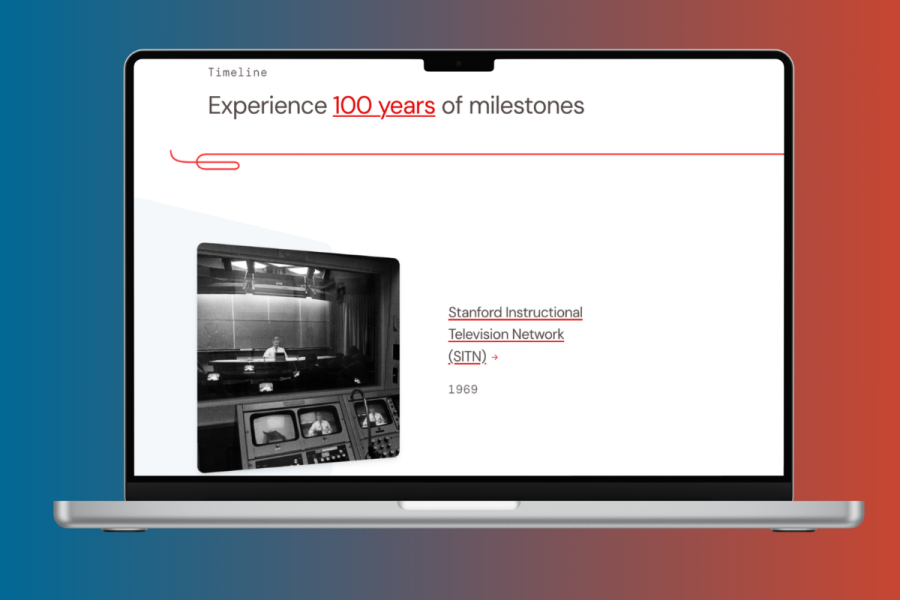Choose Storage Solutions with Confidence
Variety can be a good thing, yet it can complicate decision-making. While the university provides many storage options, we now have a storage recommendation tool to help you confidently choose a solution that meets your specific needs.

How it works
Part of the Cardinal Cloud initiative, the storage recommendation tool is an online resource that helps you select which storage technologies you should use. Based on the needs, attributes and requirements that you enter, the tool suggests which solutions are the best match for you.
You can either search for solutions or choose storage options based on several parameters:
- Intended market
- Data availability and durability
- Ease of setup and use
- Deployment model
- Cost
- Risk category
- Specific needs
Selecting parameters will filter options by adding or subtracting compatible storage solutions. Clicking on the results will provide guidance and additional information.
You’ll notice that the recommendations include both on-premise and cloud-based solutions. Some services are managed by University IT (UIT), while others are provided by third-party vendors that meet Stanford security and accessibility standards.
For each option, the tool provides example use cases, cost considerations, and the level of provided support. Click each option to learn more.

New offerings
As you explore the tool, you may notice one of our new service offerings, Wasabi, for cloud storage.
Wasabi is a popular cloud object storage service. It’s designed to be fully compatible and interoperable with Simple Storage Service (S3) from Amazon Web Services (AWS). Consider Wasabi as a drop-in replacement for S3 when designing cloud-based solutions.
Here are some of the benefits:
- Substantially less expensive than comparable alternatives
- Pay only for daily data storage
- No charges for API calls, transactions, operations, retrievals or transitions
- No data ingress or egress charges — campus data moves over Internet2 networking
- Minimum storage period per gigabyte of data is 30 days, rather than 90 or 365 days
- Solely offers hot storage with no retrieval delays
- Versioning and immutability are available options
Find out if Wasabi is right for you by exploring the Wasabi service page.
If you need assistance or have questions about Wasabi, submit a Help request to UIT’s Technology Consulting Group (TCG).
The big picture
Providing selection guidance is one piece of the CIO Council storage strategy effort that’s currently underway. As the storage recommendation tool evolves over time, input and collaboration will be provided by the Council to improve this new resource.
Stay tuned for additional versions of the tool for Compute and Professional Services.
Get started
- Explore storage recommendations with the storage recommendation tool.
- Learn more about Cardinal Cloud by visiting the Cardinal Cloud homepage.
- Submit a Help request for assistance or questions.
DISCLAIMER: UIT News is accurate on the publication date. We do not update information in past news items. We do make every effort to keep our service information pages up-to-date. Please search our service pages at uit.stanford.edu/search.
What to read next:

Migrate to Stanford GitLab's New Container Registry By March 27

Coming Soon: A New Login for Your Stanford University Microsoft Account

